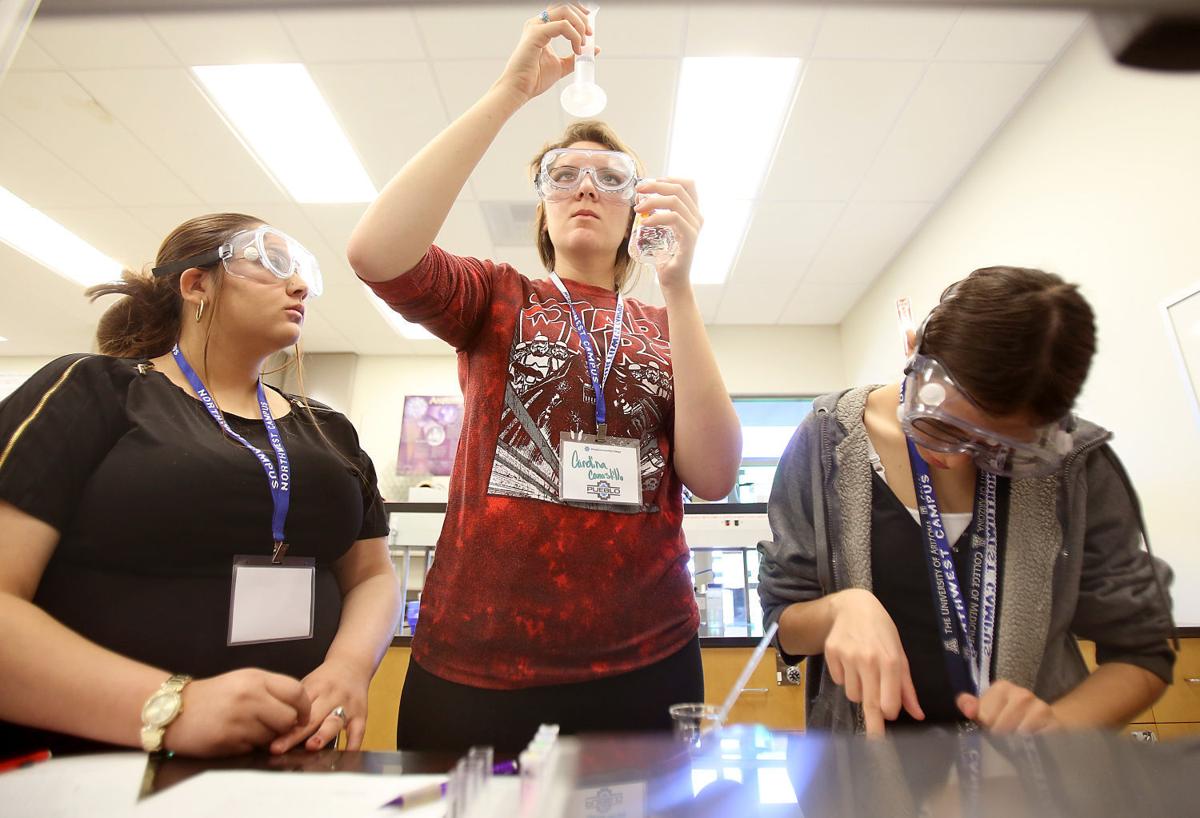Carolina Canastillo, 17, poured a packet of powder into a beaker containing clear liquid.
Upon making contact with the powder — a substance nicknamed “DPD,” which can be used to measure chlorine content — the liquid turned pink.
“That was fun,” said Canastillo, a senior at Pueblo Magnet High School who is taking a Joint Technical Education District course on biotechnology. “I think it’s good to get experience.”
She and a dozen other students from Pueblo, Tucson and Sunnyside high schools were visiting the labs of the Pima Community College Northwest Campus, as part of a tour facilitated by Youth Career Connect, offering career-path information and resources.
Youth Career Connect is a program of Arizona @ Work, a work-force solutions division of Pima County. It is funded through a U.S. Department of Labor grant.
These students are enrolled in a two-year biosciences program, which teaches them about modern molecular biology, DNA sciences and other topics, at their respective schools through JTED.
The tour included hands-on lab activities, such as the chlorine testing and forensic DNA analysis, a panel discussion on careers in the biotech industry and information on how to sign up for PCC classes.
“This is a way of reaching out to the students and introduce them to what they can do in college,” said Cheryl Blake, a biology instructor at PCC Northwest who was one of the people facilitating the tour.
“We’ve been keen on building a pipeline of talent that can feed into the biotech industry in Pima County and in Tucson,” said Pete Bantock, chief culture and human resources officer of Accelerate Diagnostics.
Local talent in science, technology, engineering and math fields tend to go elsewhere for jobs, he said. His company is interested in keeping that talent here.
The biosciences program does not provide a national certification, unlike many other career and technical education programs. But those involved want to convince the industry that students coming out of the program are capable and ready to work.
The high school biotech courses should at least prepare the students to work in entry level positions in research facilities, said Margaret Wilch, a biotech teacher at Tucson High Magnet School.
Some of Wilch’s students have done independent research at the University of Arizona, she said.
Canastillo, the Pueblo senior, said she hopes to pursue a career in the biomedical field and help children with heart issues.
The biotech program is the beginning of her journey to get there.
“It would help me in what I want to become,” she said.





